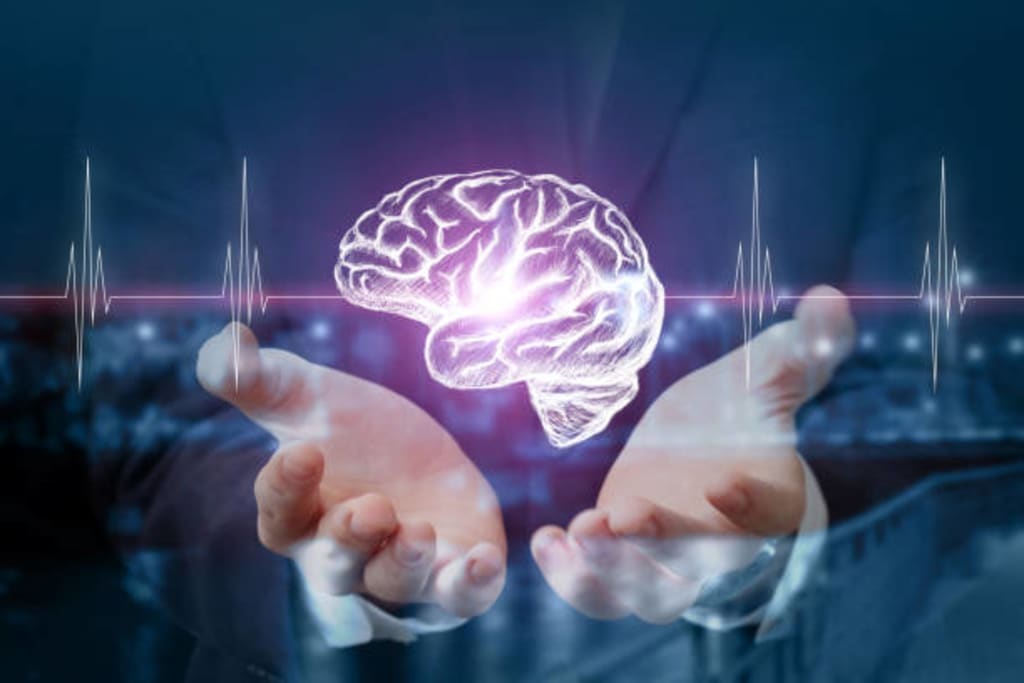
cult to concentrate on tasks, and have trouble with short-term memory, word retrieval, and decision-making? If yes, then you might have experienced what is commonly known as "brain fog."
Brain fog, also known as "mental fog," is a term used to describe a feeling of mental confusion or lack of mental clarity. It is a condition that can be frustrating and even debilitating, making it difficult to complete tasks, perform well at work or school, and enjoy social activities. In this article, we will explore the causes, symptoms, and treatments for brain fog.
What is Brain Fog?
Brain fog is a type of cognitive impairment that affects a person's ability to think, remember, and process information. It is characterized by a feeling of mental cloudiness, which can make it difficult to focus, pay attention, and perform well on tasks. People who experience brain fog often report feeling forgetful, unfocused, and having difficulty concentrating on tasks. They may also have trouble with short-term memory, word retrieval, and decision-making.
Brain fog can be caused by a variety of factors, including lack of sleep, stress, medication side effects, hormonal changes, and medical conditions such as depression, anxiety, and chronic fatigue syndrome. Some people may also experience brain fog as a result of a head injury or concussion.
Causes of Brain Fog
There are many potential causes of brain fog, including:
1. Lack of Sleep: Sleep is essential for cognitive function and brain health. When you don't get enough sleep, your brain doesn't have enough time to rest and recharge, which can lead to brain fog.
2. Stress: Chronic stress can have a negative impact on cognitive function, including memory and attention. When you are stressed, your body produces cortisol, which can interfere with the function of the hippocampus, a part of the brain that is important for memory and learning.
3. Medication Side Effects: Some medications, such as antidepressants and antihistamines, can cause brain fog as a side effect. If you are experiencing brain fog and are taking medication, it's important to talk to your healthcare provider to see if a medication change is necessary.
4. Hormonal Changes: Hormonal changes, such as those that occur during menopause or pregnancy, can lead to brain fog. These changes can impact cognitive function, making it difficult to concentrate and remember things.
5. Medical Conditions: Certain medical conditions, such as depression, anxiety, and chronic fatigue syndrome, can cause brain fog. These conditions can impact cognitive function and make it difficult to concentrate and remember things.
Symptoms of Brain Fog
The symptoms of brain fog can vary from person to person, but common symptoms include:
1. Difficulty concentrating and staying focused
2. Memory problems
3. Difficulty finding words or speaking coherently
4. Fatigue
5. Headaches
6. Irritability and mood swings
7. Anxiety and depression
8. Insomnia or other sleep problems
If you are experiencing any of these symptoms, it's important to talk to your healthcare provider to rule out any underlying medical conditions or medication side effects that may be contributing to the problem.
Treatments for Brain Fog
There are many things you can do to help manage brain fog. Here are some tips:
1. Get enough sleep: Getting enough sleep is essential for cognitive function and brain health. Aim for 7-8 hours of sleep per night.
2. Reduce stress: Chronic stress can have a negative impact on cognitive function. Try stress-reducing activities such as meditation, yoga, or deep breathing exercises.
3. Exercise regularly: Regular exercise can help improve cognitive function and reduce symptoms of brain fog. Aim for at least 30 minutes of moderate exercise per day, such as brisk walking or cycling.
4. Eat a healthy diet: Eating a balanced diet rich in fruits, vegetables, whole grains, and lean proteins can help support brain health and reduce symptoms of brain fog.
5. Stay hydrated: Dehydration can contribute to brain fog, so make sure to drink plenty of water throughout the day.
6. Limit alcohol and caffeine: Both alcohol and caffeine can contribute to brain fog, so it's important to limit your intake of these substances.
7. Talk to your healthcare provider: If you are experiencing brain fog, it's important to talk to your healthcare provider to rule out any underlying medical conditions or medication side effects that may be contributing to the problem. They may also be able to recommend additional treatments or therapies, such as cognitive behavioral therapy or medication.
In addition to these tips, there are also supplements and natural remedies that may help improve cognitive function and reduce symptoms of brain fog. Some of these include:
1. Omega-3 fatty acids: Omega-3 fatty acids, found in fatty fish such as salmon and mackerel, have been shown to improve cognitive function and reduce symptoms of brain fog.
2. Ginkgo Biloba: Ginkgo Biloba is an herbal supplement that has been shown to improve cognitive function and reduce symptoms of brain fog.
3. Vitamin B12: Vitamin B12 is important for brain health and cognitive function. If you are deficient in this vitamin, it can contribute to brain fog.
4. Rhodiola Rosea: Rhodiola Rosea is an herbal supplement that has been shown to reduce symptoms of fatigue and improve cognitive function.
It's important to note that while these supplements may be helpful for some people, they should not be used as a replacement for medical treatment or advice from a healthcare professional.
Remember that brain fog is not a normal part of aging, and if you are experiencing persistent brain fog, it's important to talk to your healthcare provider to rule out any underlying medical conditions or medication side effects.
In addition to the lifestyle changes and natural remedies discussed in this article, there are also medications that may be prescribed to help improve cognitive function and reduce symptoms of brain fog. These medications include:
1. Stimulants: Stimulants such as methylphenidate and amphetamines may be prescribed to help improve attention, focus, and cognitive function in people with ADHD or narcolepsy.
2. Antidepressants: Antidepressants such as selective serotonin reuptake inhibitors (SSRIs) and serotonin-norepinephrine reuptake inhibitors (SNRIs) may be prescribed to help improve mood and cognitive function in people with depression or anxiety.
3. Modafinil: Modafinil is a medication that is used to treat narcolepsy and other sleep disorders, but it may also be prescribed off-label to help improve cognitive function and reduce symptoms of brain fog.
It's important to note that these medications should only be used under the guidance of a healthcare professional, and they may not be appropriate or effective for everyone.
Conclusion
Brain fog is a frustrating and often debilitating condition that can make it difficult to complete tasks, perform well at work or school, and enjoy social activities. It can be caused by a variety of factors, including lack of sleep, stress, medication side effects, hormonal changes, and medical conditions such as depression, anxiety, and chronic fatigue syndrome. However, there are many things you can do to help manage brain fog, including getting enough sleep, reducing stress, exercising regularly, eating a healthy diet, staying hydrated, and talking to your healthcare provider. With the right treatment and support, you can improve your cognitive function and reduce symptoms of brain fog.
FAQs
Q: What causes brain fog?
A: Brain fog can be caused by a variety of factors, including lack of sleep, stress, medication side effects, hormonal changes, and medical conditions such as depression, anxiety, and chronic fatigue syndrome.
Q: Is brain fog a normal part of aging?
A: No, brain fog is not a normal part of aging. While cognitive function may decline slightly with age, significant cognitive impairment is not a normal part of aging.
Q: Can brain fog be cured?
A: While there is no cure for brain fog, there are many things you can do to manage it, including getting enough sleep, reducing stress, exercising regularly, eating a healthy diet, staying hydrated, and talking to your healthcare provider.
Q: How long does brain fog last?
A: The duration of brain fog can vary depending on the cause. For example, brain fog caused by lack of sleep or stress may only last a few days, while brain fog caused by a medical condition or medication side effect may persist until the underlying cause is addressed.
Q: How can I prevent brain fog?
A: To help prevent brain fog, it's important to practice healthy habits such as getting enough sleep, managing stress, exercising regularly, eating a healthy diet, staying hydrated, and avoiding alcohol and caffeine.
Q: Can supplements help with brain fog?
A: Some supplements, such as omega-3 fatty acids, ginkgo biloba, vitamin B12, and rhodiola rosea, may help improve cognitive function and reduce symptoms of brain fog. However, it's important to talk to your healthcare provider before taking any supplements, as they may interact with medications or have other side effects.
Q: When should I see a healthcare provider for brain fog?
A: If you are experiencing persistent brain fog, it's important to talk to your healthcare provider to rule out any underlying medical conditions or medication side effects. They may also be able to recommend additional treatments or therapies, such as cognitive behavioral therapy or medication.
About the Creator
Gokila
She is an astrophile, introvert,
loves to read books all day long,
addicts in healthy lifestyle
and having curiosity to know about new things.
Life Is As Beautiful As You Make It. Contentment Is The Key To Happiness. Peace Be Upon The Saviour.






Comments (3)
I follow everyday 10 minutes meditation
Good one
Thank you for posting ❤️✨😉Great Insight❗❗❗